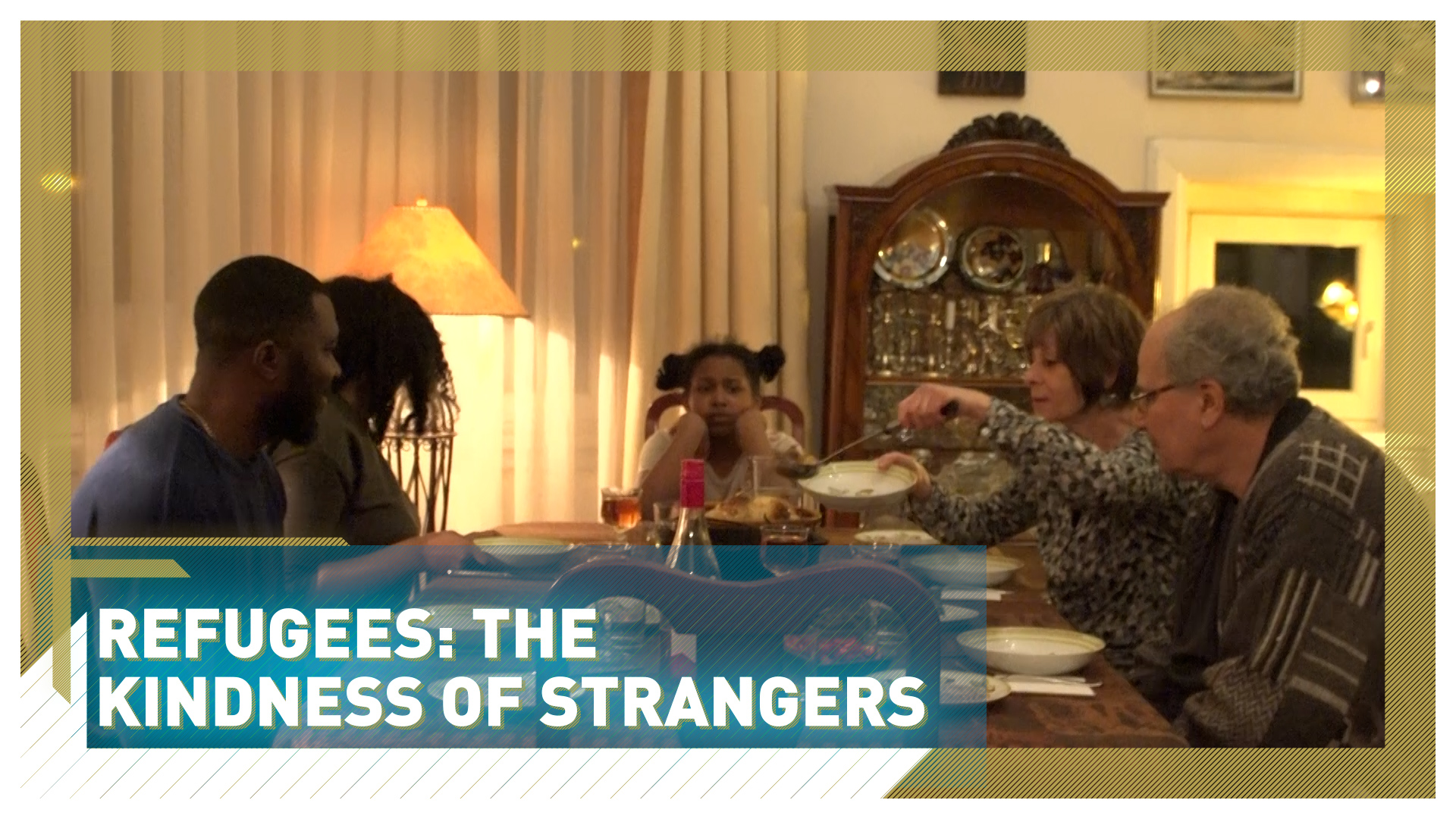03:36

Yanina Kardanova and Marcelo Abuja are just 19-years-old. This student couple, from Ukraine and Ecuador respectively, have already lived through more than most people their age.
They were studying and living in Kyiv when Russia invaded. After a couple of days they started to hear sirens and bombings in the distance.
Abuja told CGTN: "We knew they were bombing the houses of our friends and I said: 'We are not safe in Kyiv anymore.' Then Yanina told me: 'just get in the car and let's go somewhere, I don't care where. Just outside Kyiv'."
READ MORE:
Can you measure intelligence?
Stop this war! Plea from a destroyed town
What are hypersonic missiles?
They fled the Ukrainian capital in the blink of an eye, driving through the night, scared, through checkpoint after checkpoint. The journey took more than two days, which included six hours at the border.
They brought only a few clothes and their cat with them. Despite Kardanova's attempts to convince her, her mother refused to go with them.
The guilt of reaching safety without her is still hard to cope with.
"I said 'Mum, we need to leave,'" she recalls, overcome with emotion. "She didn't want to understand that it was true, that this is really going on."
Fighting back tears, Kardanova said it took a week until her mother spoke to her again after her troubled departure. Her mother now regrets not leaving with them.
The two young students are among more than 3.5 million refugees to have already fled Ukraine. Like many others, they are staying with volunteers who opened their homes to those in need.
Gabriela Magyar has hosted several refugees in recent days. She says it was easy to adapt to having a full house but difficult to handle her own despair at the situation.
"These are very young people. My daughter is 22-years-old. Yanina is just 19-years-old," Magyar told CGTN, visibly upset. "If we had to flee and she had to be taken care of by someone else, I wouldn't even sleep at night," she continued.
Magyar's family fled Hungary during the Soviet occupation in the 1940's and remembers vividly the stories of violence her parents and grandparents witnessed.
The future for her two house guests is uncertain. Abuja is waiting for a place on a humanitarian flight to return to Ecuador. Kardanova doesn't know if she will accompany her boyfriend. Her heart is still in Ukraine.

Ukrainian refugees arrive in Hungary. //Bernadett Szabo/Reuters
Ukrainian refugees arrive in Hungary. //Bernadett Szabo/Reuters
Refugees settling in to neighboring countries face common challenges: lack of housing, schools for their children, and jobs among them.
On top of this, their internal conflict between holding on to the hope of a quick return to Ukraine and accepting the need to prepare for a future elsewhere is tough.
For Silas and Julia Suleiman, a Ukrainian-Nigerian couple that fled Kyiv, that means trying to reach Canada, the United States, or the UK. They don't know how long this will take.
"To rent an apartment here [in Budapest] is very expensive, so that's one of the most difficult challenges we might be facing. We have no idea how long we will stay in Hungary," Silas told CGTN.
The parents of a six-month-old and 10-year-old, they found a place to stay with a retired Hungarian-Canadian couple: Sandor and Janet Kerekes.
Sandor Kerekes was a refugee himself. For him, helping others wasn't even a question. "We are always involved," he said.
Janet Kerekes recalls "there wasn't much conversation" over the issue. "We finished lunch and Sandor said 'let's go down to the train station and perhaps get a family', and we went," she said.
The Suleimans have both lost their jobs and their daughter is missing school. They're far from home, in a temporary situation. But for now the respite provided by the Kerekes family is enough to get by.
"If you ask who needs it more, them or us, perhaps it will turn out that probably we were the ones who needed it more," Sandor Kerekes believes.
Two very different families in very different times of their lives, breaking bread over a conflict that is not theirs but which has brought them together.

